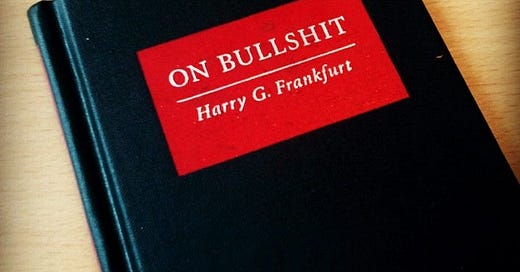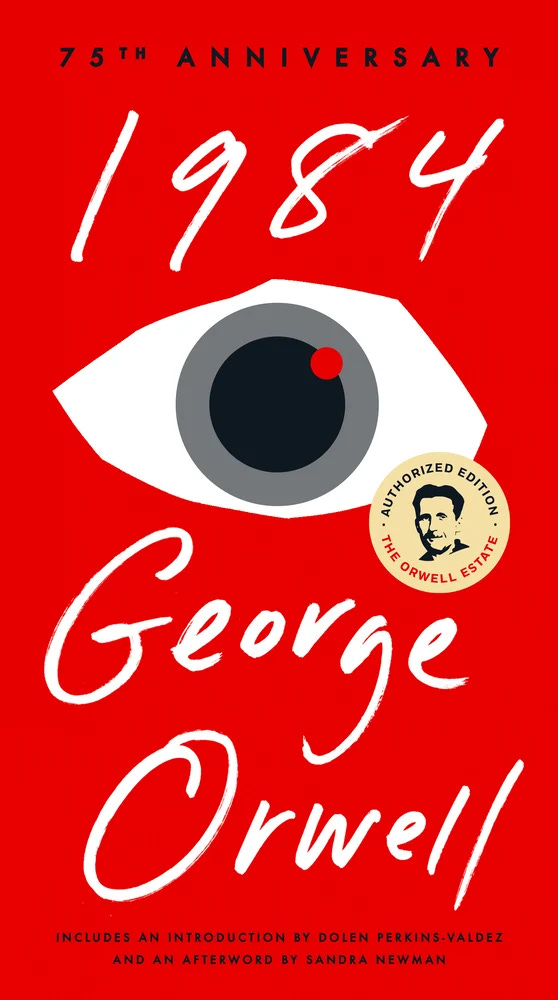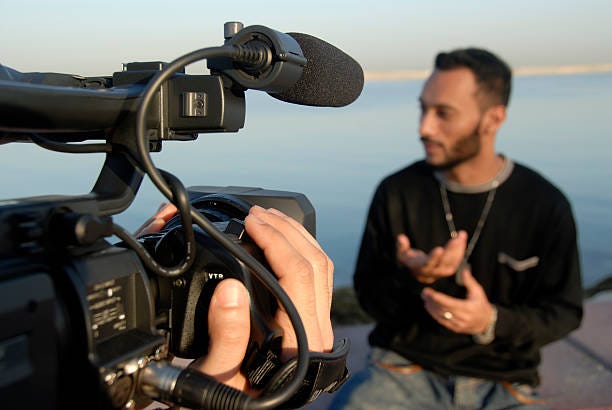“After that article came out about the Department of Homeland Security possibly teaming up with a TV producer to pitch a reality show—where immigrants would compete in challenges for a shot at U.S. citizenship—people started messaging me, saying, “This sounds like your book.” And they’re not wrong.” - Eunji Kim, author of The American Mirage
In this week’s newsletter:
On Bullshit
Misbehaving at the Crossroads - An interview with Honorée Fanonne Jeffers
Channel Spotlight: LGBTQ+ Studies
Scholarly Sources with Eunji Kim
On Bullshit
20 years ago, Princeton University Press published a short volume with an excellent title: On Bullshit. Written by philosopher Harry Frankfurt, On Bullshit was adapted from an essay that explored the meaning, uses, and consequences of bullshit. At just 80 pages, On Bullshit became a favorite of readers, selling over 1 million copies and spending 27 weeks on the New York Times bestseller list. It’s not often that a work of philosophy breaks through to the mainstream, but readers of On Bullshit quickly discover why. Harry’s meditation on the meaning of bullshit can be read in one sitting, but the ideas have staying power.
After you read Harry’s book, you start to see bullshit everywhere and recognize it’s uniquely pernicious effects on whatever’s left of the public square. Harry wrote his book long before modern social media and AI-generated slop. He was unbelievably prescient, making On Bullshit required reading for today. Harry sadly passed in 2023 at 94 years old, but his ideas live on.
In anticipation of the release of the 20th anniversary edition, philosopher Pamela Hieronymi joined us to introduce readers to both the book and the man who wrote it. In future interviews, we’ll speak with other scholars who explore Harry’s notion of bullshit in politics, science, and more.
Misbehaving at the Crossroads
Listen to NBN Host Sullivan Summer interview Honorée Fanonne Jeffers about her new book, Misbehaving at the Crossroads: Essays & Writings, published earlier this week. The New York Times-bestselling, National Book Award-nominated author of The Love Songs of W.E.B. Du Bois and The Age of Phillis makes her nonfiction debut with this personal and thought-provoking work that explores the journeys and possibilities of Black women throughout American history and today.
You can catch a clip of the video of their interview below, and the whole interview at Sullivan’s Substack Additions to the Archive:
Channel Spotlight: LGBTQ+ Studies
LGBTQ+ Pride Month is celebrated every June in the United States and around the world. To learn more, check out our LGBTQ+ Studies Channel and hear scholars discuss their research.
First, listen to Amin Ghaziani discuss his book, Long Live Queer Nightlife: How the Closing of Gay Bars Sparked a Revolution (Princeton UP, 2024). Drawing on experiences at underground parties in London and over one hundred interviews with bar owners, party producers, attendees, and activists, Amin presents a detailed portrait of a queer community marked by creativity, resilience, and joy.
Next, hear Let Us Play: Winning the Battle for Gender Diverse Athletes (Beacon Press, 2025). In the book, trans athlete Harrison Browne and investigative journalist Rachel Browne examine the debates and public response surrounding transgender athletes.
Finally, learn about gender manifesting in Tokyo as Michelle H. S. Ho discusses her book, Emergent Genders: Living Otherwise in Tokyo's Pink Economies (Duke UP, 2025). In it, she explores gender alongside Japanese popular culture in Akihabara, an area in Tokyo renowned for the fandom and consumption of anime, manga, and games.
Subscribe to the LGBTQ+ Studies Channel to stay up to date on the latest research in the field!
Scholarly Sources: Eunji Kim
Eunji Kim is a political scientist at Columbia University. Her research explores how entertainment media—often dismissed as trivial—shapes public opinion and political behavior. Her first book, The American Mirage: How Reality TV Upholds the Myth of Meritocracy (Princeton UP, 2025), examines how rags-to-riches narratives in popular media sustain Americans’ faith in the American Dream, even amid rising inequality.
Q: What are you reading right now?
A: I’ve been returning to dystopian fiction lately—maybe because of the times we’re living through. I recently re-read Fahrenheit 451 and Brave New World. These books are chilling, but also incredibly clarifying.
Q: What is your favorite book or essay to assign or give to people, and why?
A: I often assign Walter Lippmann’s Public Opinion. It’s one of those texts that somehow feels more relevant each year. Lippmann understood that people don’t experience the world directly—we experience it through the stories and symbols we’re given. That idea is foundational for my own work.
Q: Is there a book you read as a student that had a particularly profound impact on your trajectory as a scholar?
A: Larry Bartels’ Unequal Democracy: The Political Economy of the New Gilded Age was that book for me. It helped me realize that my own questions about inequality—ones I’d grown up asking my mom—were also central to political science. That realization was a turning point.
Q: Which deceased writer would you most like to meet and why?
A: Alexis de Tocqueville. As a foreigner studying American democracy, his perspective was refreshingly sharp—and often more accurate than those of his contemporaries. I relate to that experience, as someone who’s also looking at American politics from both inside and out.
Q: What's the best book you've read in the past year?
A: I loved rereading Orwell’s 1984. It’s deeply unsettling, of course, but I was struck by how timeless it feels. Every read uncovers something new.
Q: Have you seen any films, documentaries, or museum exhibitions that left an impression on you recently?
A: I recently visited the exhibition Drawn From The New Yorker: A Centennial Celebration—and it stayed with me. The show traces the magazine’s 100-year journey through its iconic covers and cartoons, but what struck me most was how seriously it treats humor as a form of cultural commentary. The New Yorker’s single-panel cartoons aren’t just clever drawings. They’re tight little stories about ambition, awkwardness, urban life, and human contradiction. It reminded me how powerful “soft” forms of media can be. You don’t need breaking news or a pundit’s panel to say something sharp about the world. Sometimes a single line drawing can land harder than a think piece.
Q: What do you plan on reading next?
A: Careless People: A Cautionary Tale of Power, Greed, and Lost Idealism by Sarah Wynn-Williams, a former Facebook executive. I’m curious how someone from inside Big Tech reflects on the platforms that shape our public lives.
Q: What sparked your interest in studying entertainment media from a political science perspective?
A: At first, I thought I had to study formal institutions or elite discourse to do “serious” political science. But as I kept thinking about inequality and public opinion, I realized that the most powerful stories shaping people’s worldviews weren’t coming from the news—they were coming from entertainment. Shows like American Idol or Shark Tank were quietly delivering political messages, just in a different register. That realization changed the course of my research.
Q: It feels like reality TV has taken over pop culture in the US in the past few years. What is drawing people to reality TV, and how does it help shape politics and public opinion?
A: Most people aren’t deeply engaged in politics—and when they do encounter news, it’s often stressful or negative. Reality TV offers an escape. But it also offers a compelling worldview: that anyone, no matter how humble their beginnings, can make it big. That’s a deeply political idea. It sustains belief in meritocracy, often in direct contradiction to people’s material conditions. And unlike partisan news, these stories cut across ideological lines.
Q: Who should read The American Mirage and why?
A: Hopefully, anyone! I really tried to write a book that people would want to read—not just other academics, but anyone curious about how pop culture shapes the way we think about success, fairness, and who gets ahead in America. I wanted it to be smart but readable, serious but also fun.
And honestly, it feels more relevant than I ever expected. After that article came out about the Department of Homeland Security possibly teaming up with a TV producer to pitch a reality show—where immigrants would compete in challenges for a shot at U.S. citizenship—people started messaging me, saying, “This sounds like your book.” And they’re not wrong. That idea—turning something as high-stakes as immigration into entertainment—is exactly the kind of thing The American Mirage tries to explain. We’re living under President Trump again—a former reality TV star whose rise wasn’t an accident or an anomaly. It was the product of a culture that blurs the line between spectacle and politics.
This book is about that culture. It’s about how the stories we binge, the winners we cheer for, and the dreams we’re sold on screen quietly shape what we believe is fair, what’s possible, and who deserves a shot. If that sounds like the world you’re living in, this book’s for you.
Q: Anything else you’d like to share?
A: I used to think I had to choose between writing something “important” and writing something fun. This book taught me that the best work often lives at that intersection. If The American Mirage resonates with readers, I hope it’s because it captures how the stories we love—and the ones we don’t even realize we’re absorbing—shape the way we understand justice, success, and what we deserve.
Listen to Eunji’s NBN interview here!











I remember picking this up in my school library years ago. I bought a copy some years later.